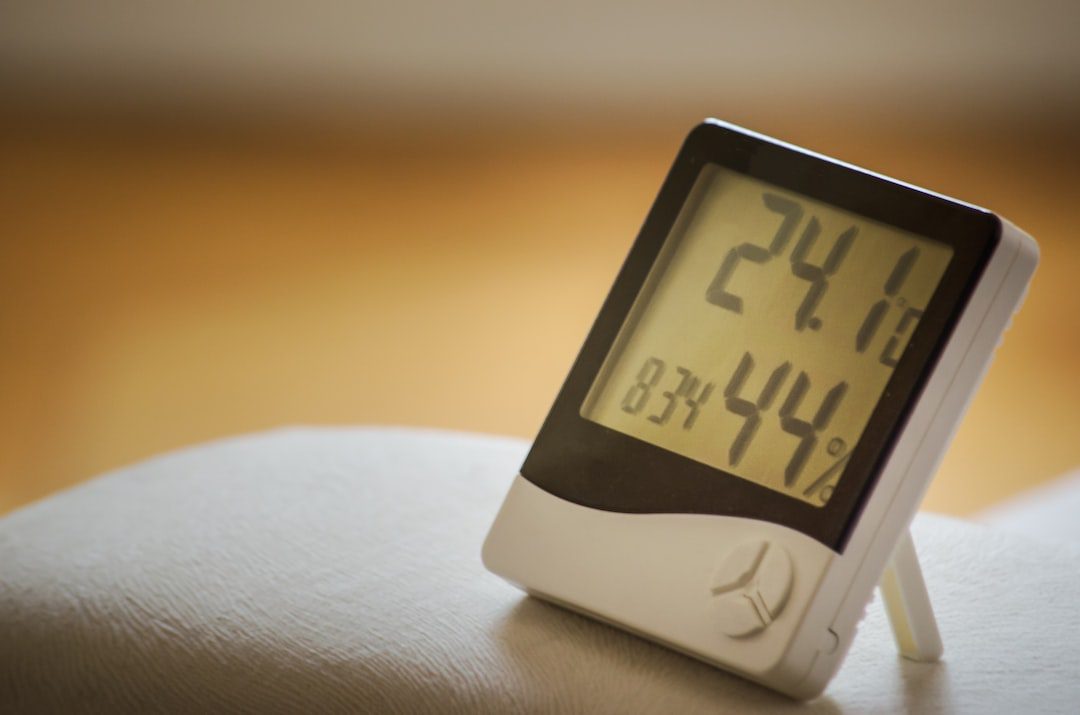Around the country, there is enough demand for water and air quality testing services to keep more than 12,000 people employed. That is a testament to how much people appreciate the importance of improving their indoor air quality.
However, when many people think about indoor air quality, it never occurs to them to think about humidity control system options. By the end of this article, we hope you will appreciate why this is a mistake. Humidity control systems are one of the best investments you can make in enjoying better indoor air quality at home.
On top of that, you might need to control the humidity in your home to stop experiencing certain problems. Read on to learn all about the most vital things to understand about humidity control systems and how they affect indoor air quality!
Avoiding the Downsides of Poor Humidity Levels
So what exactly is indoor humidity? There are two kinds of humidity to keep in mind. They are relative humidity and absolute humidity.
Absolute humidity refers to how much water vapor there is in a given quantity of air.
In contrast, relative humidity describes how much water vapor there is in the air relative to how much water that air could hold.
When it comes to home humidity levels, relative humidity is the relevant measure. The bad news is that the wrong relative humidity levels in your home could cause serious problems.
Dry Air Problems
For one thing, if your home’s relative humidity is too low, your home will be full of dry air. That can increase the probability that you or someone else in your home experiences dry skin or chapped lips. Low indoor humidity can also lead to chronic coughs, nosebleeds, and itching around the eyes or nose.
On top of that, people with respiratory sensitivities may find their symptoms flaring up if they breathe too much dry air.
Dry air can also carry viruses more effectively, increasing the chance that you will catch a cold or another illness at home.
Humid Air Problems
On the other hand, high relative humidity levels in your home can cause equally bad problems. When your home’s humidity is high, it is much easier for mold and mildew to flourish. You might also find that your sinuses tend to get plugged up and it is difficult to breathe.
Other people experience headaches when they breathe humid air for a long time.
Plus, high humidity levels in your home can make warm temperatures feel hotter. At the very least, that might mean that you end up paying more to cool down your home so you can stay comfortable. However, in some cases, high humidity can also increase the chance that people develop heat exhaustion or heat rashes.
Understanding Good Indoor Humidity Levels
The ideal humidity level is somewhere in the middle. As a general rule, you will want your home humidity levels to be above 35% and below 60%.
With the right humidity levels, you will find it as easy to breathe as possible. However, having the right humidity levels can also have a profound effect on your indoor air quality.
How Humidity Controllers Affect Indoor Air Quality
Although it might sound strange, both high and low levels of humidity can make it easier for bacteria to grow in your home and float around in your air. Adjusting your humidity levels can mean getting rid of excess quantities of bacteria and viruses.
Plus, balanced humidity levels tend to cause all kinds of air pollutants to sink to the ground. That way, you won’t have to breathe them in. Effectively, they will be irrelevant once they are sitting safely on the floor.
That means that adjusting your home humidity levels can be a powerful way to decrease the prevalence of all indoor air pollutants in your home.
The Benefits of Controlling Home Humidity
So what is the final result of getting your home humidity levels where they should be? For one thing, your home will feel more comfortable. Instead of feeling oppressive, the air will feel more refreshing.
It will also be easier for you to cool or heat your home to your preferred temperature. That means that investing in home humidity levels can even cut down on your HVAC energy costs.
As energy prices get higher, this benefit becomes even more pronounced. Plus, many people do not realize that home HVAC systems are sometimes responsible for as much as 50% of a home’s energy consumption.
With appropriate home humidity levels, it will also be easier for your skin to stay healthy. You might also find that you don’t experience itchy eyes or a dry throat as often. People with respiratory sensitivities will be able to breathe your home air without any negative side effects.
Plus, you might even experience fewer illnesses caused by pollutants floating in your air.
The Benefits of Avoiding Indoor Air Pollutants
Once your humidity levels have removed pollutants from your air, you will also enjoy the many benefits of improved indoor air quality. Many people find it easier to enjoy deep and restful sleep at night when they breathe clean air.
You probably know for yourself how subjectively good it can feel to go outside for a breath of fresh air. However, with cleaner air inside, you might be able to hold on to that feeling even when spending time indoors.
These benefits can be even more pronounced if you are concerned about outdoor air pollutants. Many people have seen for themselves how much trouble these pollutants can cause as they have dealt with wildfire smoke in their areas.
Most people also report that their minds feel clearer and their bodies feel more energized when they breathe clean air.
Enjoy the Benefits of a Humidity Control System
We hope you now have a clear understanding of the multiple benefits of using a humidity control system in your home. The better your indoor air quality, the better you are likely to feel. Considering how much time people spend indoors these days, investing in indoor air quality is a huge investment in life quality as well.
To find out more about how you can find the best HVAC services in Rohnert Park, CA for you, contact us at Milano Mechanical at any time!


